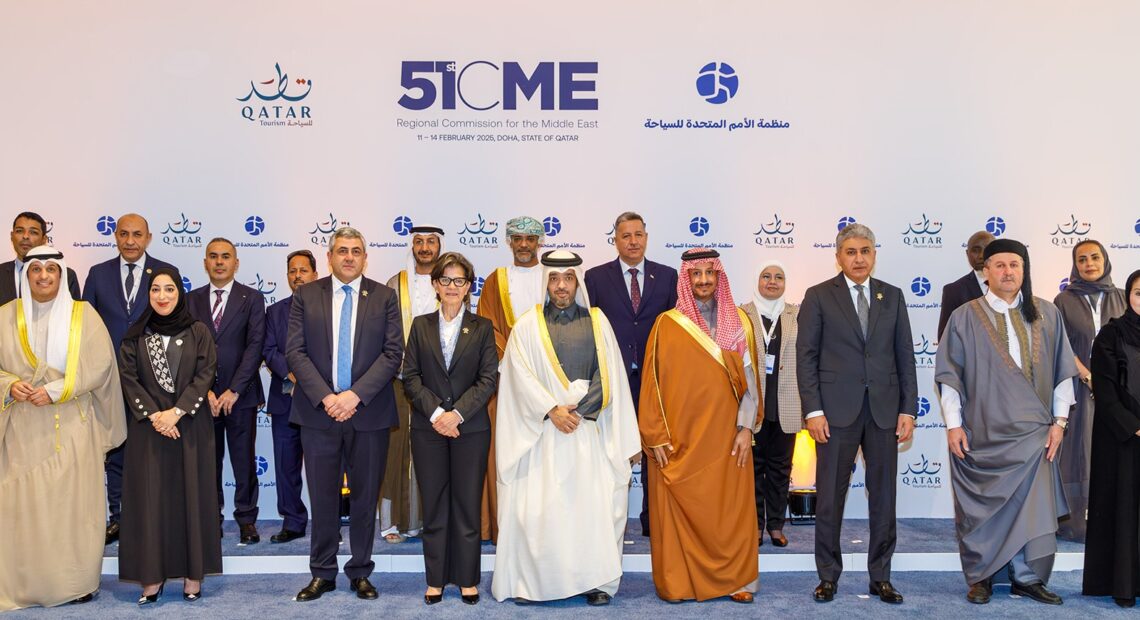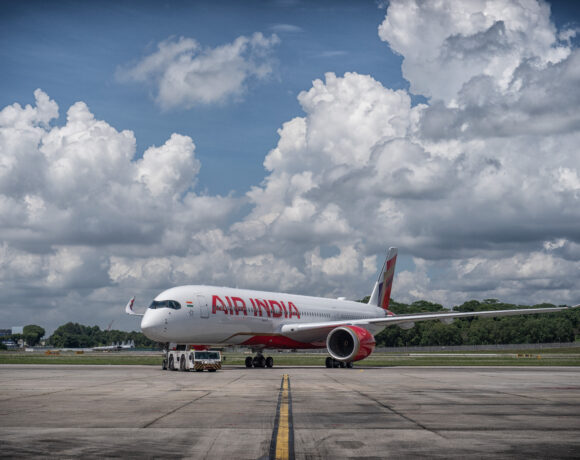UN Tourism sees Middle East as education and sports tourism leader

Region is a powerhouse in luxury tourism
UN Tourism’s member states from across the Middle East convened in Doha, Qatar, on February 13, 2025, to discuss and shape the sector’s continued growth across the region.
The 51st session of the Regional Commission featured high-level delegations from 13 member states, including eight tourism ministers. The gathering provided a platform to assess progress, analyse industry trends, and set the priorities for the region’s next phase of tourism development.
As the Middle East finished 2024 as the region with the fastest recovery from the pandemic’s global impacts, UN Tourism Secretary-General Zurab Pololikashvili took a moment to commend the region’s remarkable progress. He highlighted Qatar as a prime example, with the country on track to meet its ambitious target of welcoming six million tourists annually and increasing tourism’s contribution to its GDP to 12%.
“The Middle East stands out as one of the most exciting places for tourism. The region is a leader in fields such as luxury tourism, wellness tourism, and sports tourism, and it is also spearheading efforts to increase investment in the sector. Additionally, there is a concerted focus on education and training to equip millions of future tourism workers with the necessary skills,” said Pololikashvili.
The Middle East has emerged as a powerhouse in luxury, wellness, and sports tourism. The region is attracting international visitors and making strides in providing education and professional development opportunities for those entering the tourism workforce.
The discussion centred on the development of human capital. Pololikashvili’s report, along with that of the Regional Director for the Middle East, highlighted UN Tourism’s efforts to support member states in developing talent through education and training.
One key achievement is the UN Tourism Online Academy, which has now enrolled 30,000 students, over half of whom are women. The Academy offers 50 courses in collaboration with 18 academic partners, and new courses have recently been introduced, including those developed with the support of Saudi Arabia.
Moreover, UN Tourism’s Education Toolkit, designed for high school students, is being implemented in the United Arab Emirates to introduce younger generations to the tourism sector. In addition, the Human Capital Development by E-Learning Project in Saudi Arabia has added 10 new courses, integrating Artificial Intelligence to improve training accessibility and outcomes.
In Saudi Arabia, the Riyadh School of Tourism and Hospitality plays a pivotal role by equipping future professionals with the skills necessary to drive the industry forward. These initiatives underscore the region’s commitment to shaping a knowledgeable workforce capable of supporting the industry’s growing demands.
Sports tourism emerged as another key area of focus during the meeting. The 2022 FIFA World Cup success in Qatar was cited as a model for other destinations to emulate. Qatar’s World Cup showcased the region’s potential to use sports as an economic diversification tool, a strategy being followed by other nations. Major international sporting events such as the Formula 1 races in Bahrain and the UAE, the Dakar Rally in Saudi Arabia, and the acquisition of top football players and teams are helping to solidify the Middle East’s position as a hub for sports and sports tourism.
The importance of sports tourism was further emphasised through a dedicated one-day conference on Sports Tourism and the Future of the Tourism Industry, the World Cup, held within the framework of the Regional Commission. The region’s ability to host world-class events contributes to its rising profile as a global tourism leader.
Regional cooperation remains a cornerstone of the Middle East’s tourism strategy. The Commission’s members confirmed key appointments for the next few years, reflecting the region’s spirit of collaboration. Kuwait was named Chair of the Regional Commission for 2025-2027, with Qatar serving as First Vice-Chair and Iraq as Second Vice-Chair. Egypt and the UAE will represent the region on the UN Tourism Executive Council for 2025-2029.
Saudi Arabia will join the Committee on Tourism Online Education, and the UAE will participate in the Technical Committee for the International Code for the Protection of Tourists, both for the same term. These appointments highlight the region’s ongoing commitment to strengthening cooperation and shaping the global tourism agenda.
Image: The 51st session of UN Tourism’s Regional Commission in Doha, Qatar, featured high-level delegations from 13 member states, including eight tourism ministers. Credit: UN Tourism












